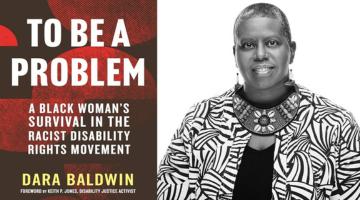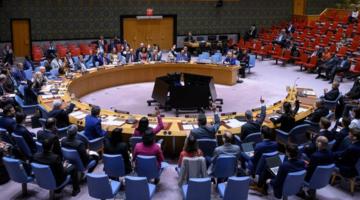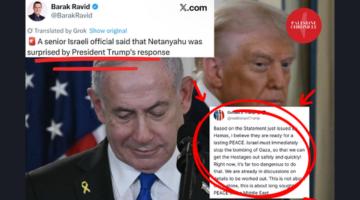Black and brown anticolonialists used the United Nations to push for new and egalitarian relationships among nations and peoples.
“Anticolonial nationalists took as their central aim the transformation of the international order.”
In this series, we ask acclaimed authors to answer five questions about their book. This week’s featured author is Adom Getachew. Getachew is the Neubauer Family Assistant Professor of Political Science and the College at the University of Chicago. Her book is Worldmaking after Empire: The Rise and Fall of Self-Determination.
Roberto Sirvent: How can your book help BAR readers understand the current political and social climate?
Adom Getachew: My book Worldmaking after Empire: The Rise and Fall of Self-Determination charts the global vision of decolonization that African and Caribbean anticolonial nationalists pursued for the three decades that followed World War II. I argue in the book that rather than solely nation-builders we should understand anticolonial nationalists as worldmakers. In the book, I chart three different projects of worldmaking: the institutionalization of a universal right to self-determination, the constitution of regional federations in Africa and the Caribbean, and the effort to create a New International Economic Order. In these worldmaking projects, anticolonial nationalists took the international arena as the central stage for the politics of decolonization.
“We should understand anticolonial nationalists as worldmakers.”
I hope that understanding how anticolonial critics combined nationalism and internationalism and recognizing the contradictions their projects faced will help us navigate the contemporary debates about international order. In our contemporary moment with the rise of authoritarian and fascist movements across the North Atlantic, a critique of and rejection of internationalism has become dominant. Whether in the form of Brexit or Trump’s disavowal of international organizations such as the UN and NATO, the rise of the New Right has taken an isolationist orientation to the world. In this context, a number of public intellectuals and international relations scholars have called for a recommitment to the postwar liberal international order and to institutions like the UN, NATO, the World Trade Organization, and the European Union. From the standpoint of decolonization, however, the very institutions lauded as hallmarks of a liberal international order have exacerbated international hierarchy. For instance, the UN Charter institutionalized the hierarchical world of empire: Members of the Security Council had the power of the veto, the League of Nations mandates persisted under the new trusteeship system, and colonies were euphemistically described as “non-self-governing territories.” Self-determination, the anticolonial demand for independence and popular sovereignty, was only mentioned in Article 1 and Article 55.
“The very institutions lauded as hallmarks of a liberal international order have exacerbated international hierarchy.”
My book helps us understand that the postwar international order was always subject to political contestation. Immediately after the formation of the UN, the Nigerian nationalist Nnamdi Azikiwe noted that“there is no new deal for the black man at San Francisco …Colonialism and economic enslavement of the Negro are to be maintained.” I show that a vision of an egalitarian international order was not the product of American architects of the postwar international order, but instead was the product of anticolonial struggle within the UN and beyond it. Second, I show that American defection from international institutions is not of recent vintage, but a product of US backlash against the Third World vision of an egalitarian international order.
What do you hope activists and community organizers will take away from reading your book?
There are a couple of lessons the book offers to political actors. First, for those concerned with political transformation in the postcolonial world, I hope that activists might remember the unrealized vision of decolonization. We live in a moment of deep pessimism about the postcolonial state, but it is also one where decolonization has once again returned as a language of political struggle. By returning to the expansive projects of anticolonial worldmaking, we might expand our sense of what decolonization will require in our contemporary moment without aiming to reproduce the political projects of half a century ago. Second, for political actors concerned with racial hierarchy domestically, I hope this book illustrates the centrality of a global framework of analysis and action. I think for many organizers especially in the Movement for Black Lives, this will not be a surprising lesson. I hope this strengthens a more internationalist spirit among black activists in Africa and across the diaspora. Finally, I think another lesson of the book is that even inimical institutions can become the site of egalitarian and liberatory projects. As I mentioned earlier, in 1945 no one believed the UN would become the central international forum for the global politics of decolonization. But in 15 years, anticolonial nationalists had captured the institution and worked to universalize self-determination. Nothing about this was foreordained. This is not to suggest we should put all our eggs in existing institutions, but that institutions can be revised and remade under the right conditions.
We know readers will learn a lot from your book, but what do you hope readers will un-learn? In other words, is there a particular ideology you’re hoping to dismantle?
My book is primarily writing against a standard account of decolonization where the end of formal empire is associated with the universalization of the nation-state form and the expansion of international society to include African, Asian and Caribbean states. I argue that this picture of decolonization stems from an account of empire as alien rule where the primary problem for nationalists was overcoming direct foreign domination and exclusion from international society. On this view, the nationalist aim was two-fold: to overcome foreign rule and to gain inclusion in an existing order. My main argument is that this account obscures the ways that anticolonial nationalists took as their central aim the transformation of the international order.They sought to remake the world, I contend, because they viewed empire itself as global project that had by the dawn of the twentieth century produced a racialized international hierarchy. Because hierarchy was embedded in the very structure of the international order, simply overcoming alien rule was not a sufficient guarantee of independence. Black anticolonial nationalists learned this lesson through the interwar experience of Haiti, Liberia and Ethiopia. Although independent each state was subject to forms of legal, political and economic domination. Haiti experienced a 19 year occupation, Ethiopia narrowly escaped mandation through an unequal membership in the League before being invaded by Italy, and Liberia was subject to a form of financial domination that also almost led to its incorporation into the mandate system. Viewing empire as a form of unequal integration illustrates the continuities of imperial structures in our own time.
Who are the intellectual heroes that inspire your work?
I am deeply inspired by the generation of intellectuals, activists, and everyday people who directly challenged the four-century project of European domination. My book is a very small slice of this generation, focused on high politics and as such it privileges statesmen. This is probably one of the greatest shortcomings of the book. I am really excited about the new social histories of decolonization such as Jeffery Ahlman’s Living with Nkrumahism and Priya Lal’s Between the Village and the World, which provide a broader view of the actors who made possible the political projects of decolonization. The characters I study emerged from a broader world of black internationalism and from mass movements in which people boldly imagined a world after empire. I am constantly humbled by the scale and range of their visions, their courage, and perseverance.
In what way does your book help us imagine new worlds?
I don’t think that the past can provide any straightforward answers to our contemporary predicaments. The book is trying to think about how in a particular historical, political, and ideological context, political actors situated in the Black Atlantic reimagined their world. Our context is very different on a number of fronts from the world my characters inhabited after World War II. We can take, for example, the contemporary urgency of climate change as just one sign of this transformed context. I think what we can learn from anticolonial worldmakers is that even moments of political closure can become terrains for radical reimagining. For instance, by the time my actors arrive on the political stage, the nation-state had become the dominant (and only legitimate) institutional form for international politics and the Cold War was at its height. But even in a moment when political options were narrowing they used the ideological and institutional openings available to them to push for an alternative world. This is one way in which our context resemble theirs. We too inhabit a moment that feels closed to radical possibility. But through a process of immanent critique, we might find the resources we need to imagine a new world.
Roberto Sirventis Professor of Political and Social Ethics at Hope International University in Fullerton, CA. He also serves as the Outreach and Mentoring Coordinator for the Political Theology Network. He is co-author, with fellow BAR contributor Danny Haiphong, of the forthcoming book, American Exceptionalism and American Innocence: A People’s History of Fake News—From the Revolutionary War to the War on Terror.
Comments?
Please join the conversation on Black Agenda Report's Facebook page at http://facebook.com/blackagendareport
Or, you can comment by emailing us at coments@blackagendareport.com



















